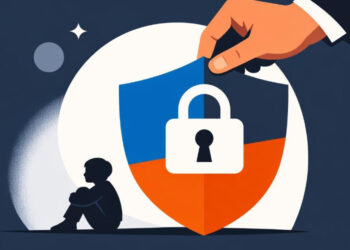MADISON, WI — Love it or hate it; nudity tends to include at least a passing sense of vulnerability. Thanks to a Wisconsin state court of appeals, that vulnerability doesn’t have to extend into the realm of legal rights.In a decision handed down today, the court affirmed that removing one’s clothing in the company of another does not equal folding up and putting away one’s right to privacy.
The case bringing this issue to light concerns Mark Jahnke, who took it upon himself to videotape his now very ex-girlfriend while she was both nude and joined to his genitals with various body parts of her own. While there’s nothing wrong with that, Jahnke neglected to let his then-girlfriend in on the video secret.
According to Jahnke, whose future ex-girlfriends might want to pay attention, the fact the woman was naked while in his presence meant that she had given up all claims to privacy.
In a move that should hearten those who’ve watched personal rights erode during the past eight years, the state Department of Justice disagreed.
Michael Herbert, Jahnke’s attorney, had pointed to an earlier court decision that had found that nude people who are “secluded from the presence of others” could have a reasonable expectation of privacy – but that Jahnke’s girlfriend at the time had not been in seclusion.
Instead, the woman had begun to suspect something was up when she noticed a red light flashing underneath a pile of clothes in her bedroom. After she complained to the Stevens Point police, Jahnke’s house was searched and 33 audio tapes of the couple having sex and three DVDs were located. While one DVD captured the couple’s most intimate couplings, the other two focused on the woman’s nudity in her own home.
At issue is the state’s increasingly privacy protecting views on video voyeurism. The state DoJ contends that simply sharing sexual intimacy does not equal handing over one’s right to know when filming is taking place.
Dissenting from the 2-1 decision was Judge Charles Dykeman, who contends that the 2001 video voyeurism law does not necessarily make what Jahnke did illegal.
Nonetheless, Attorney General J.B. Van Hollen heralded the ruling, saying that “Wisconsin’s citizens enjoy a reasonable expectation of privacy not to be secretly videotaped while in the nude, and Wisconsin’s criminal law has been correctly interpreted to protect that expectation.”
Jahnke, a high school chemistry teacher, pled guilty in April 2007 to illegally making a nude recording. Instead of being fired per school official vote, he was able to negotiate a resignation. An appeal put his three year probation and six months in jail on hold. It is unknown whether he plans to appeal his latest conviction to the state Supreme Court.












